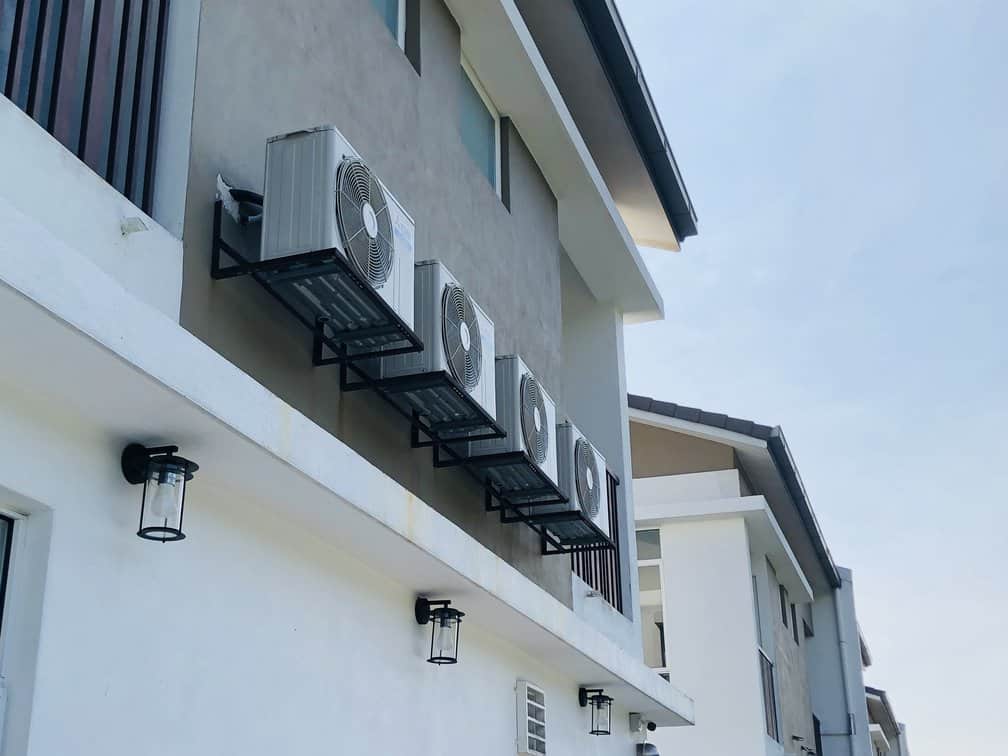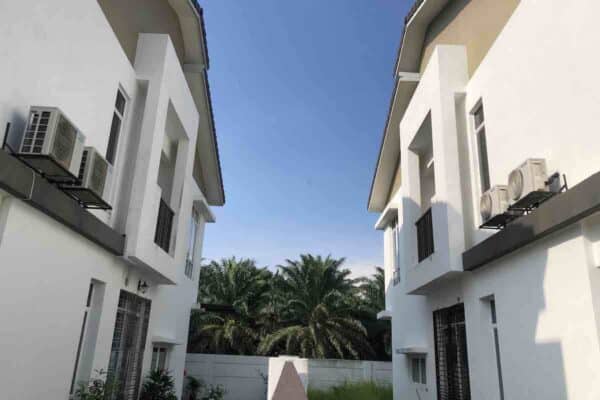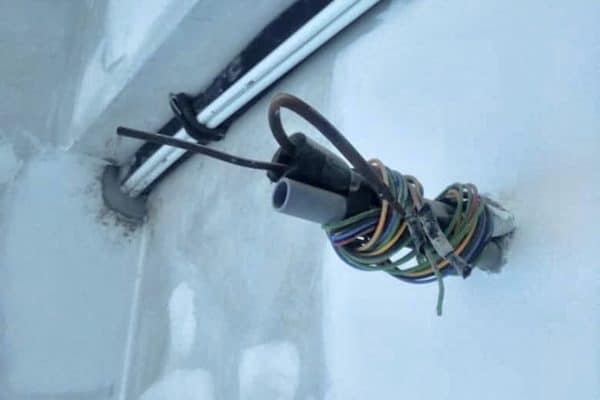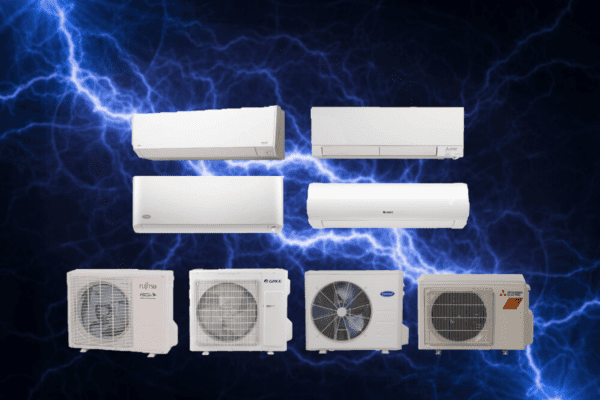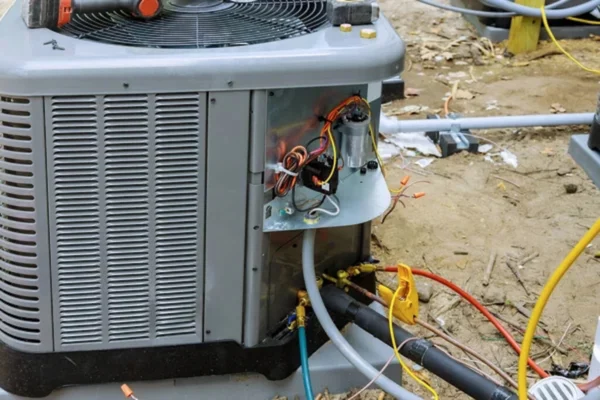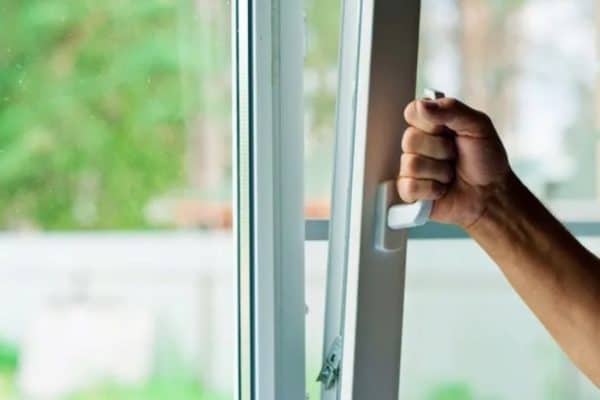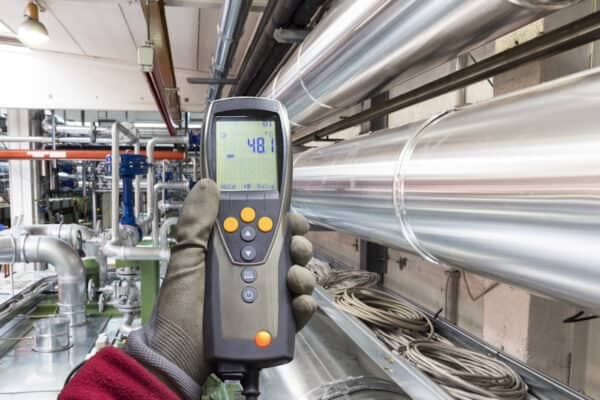Does Outside Temperature Affect Air Conditioner?
Air conditioners provide us comfort during hot days. But, how about the air conditioner itself? Does outside temperature affect air conditioner?
Air conditioners consume more power when the outside temperature is high. Air Conditioners are depending on the ambient air to remove heat. When the outside temperature is high, the air conditioner can’t remove heat effectively. Thus, the air conditioner may struggle to provide sufficient cooling.
An air conditioner not only consumes more power during hot days, but it also may not provide sufficient cooling for your house. However, there are ways to improve it.
How Outside Temperature Affects the Air Conditioner?
Air conditioners absorb heat in a room and release it to the outside to achieve cooling. It relies on the outside air to carry away the heat. If the outside air temperature is high, it can’t carry as much heat as when it is cold.
1. Air Conditioner Takes a Longer Time to Cool
As mentioned, when the outside temperature is high, the cooling capacity of the air conditioner is low. Conversely, when the outside temperature is low, the cooling capacity of the air conditioner is high. Although there are many factors that affect the time required for the air conditioner to cool the room, the cooling capacity of the air conditioner has the biggest impact.
Usually, we size air conditioners as optimal as possible. We try not to oversize or undersize air conditioners to give the best bang for the buck. Hence, when the outside temperature is high, you’ll notice that your room takes a long time to cool compared to when using the air conditioner at night.
Besides, when the outside temperature is high, your room also has much more heat. The outside temperature not only reduces the performance of the air conditioner but also makes the air conditioner work longer hours to cool the hotter room.
2. Air Conditioner Consumes More Power
We all know that when the outside temperature is high, the air conditioner needs to work harder to cool the room. Therefore, it consumes more power. But, it is more than that.
The power consumption of the air conditioner is associated with the efficiency of the air conditioner. The efficiency of the air conditioner is measured by the coefficient of performance (COP). The higher the COP, the higher the efficiency, and thus, the lower the power consumption.
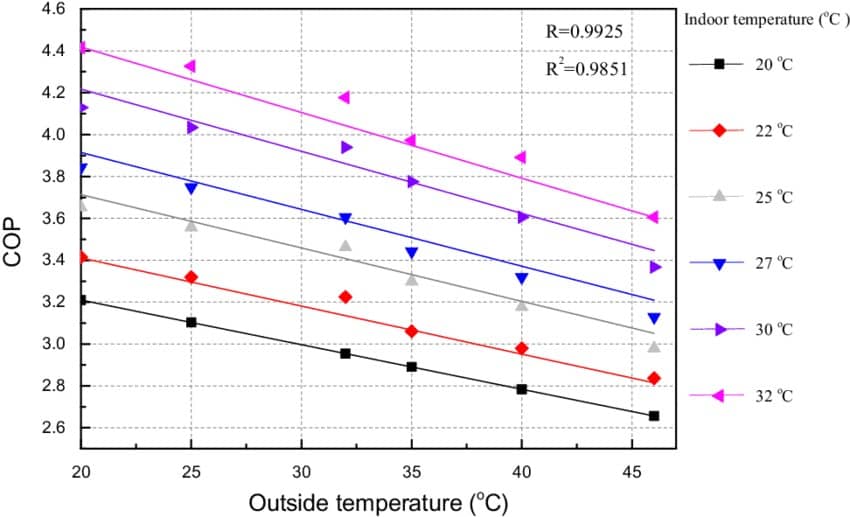
From the above graph, we can see that as the outside temperature increases, the COP decreases. Hence, the outside temperature is exponentially affecting the COP and power consumption of the air conditioner. Besides, you may have noticed that setting your air conditioner at around 25°C is the best for energy efficiency.
3. Hot Weather Shorten the Lifespan of the Air Conditioner
Air conditioners are designed to withstand hot days. Most air conditioners can operate anywhere between 10°C to 45°C in cooling mode depending on the region, manufacturer, and model.
Even so, air conditioners that are constantly working under high outside temperature conditions will have to work much harder compared to working under lower outside temperatures. Thus, the lifespan of the air conditioner may shorten.
4. Room Temperature Fluctuates with the Outside Temperature
The amount of cooling provided by an air conditioner sways with the outside temperature. When it is hot outside, you’ll feel that the air conditioner is not as cold as it is when the outside is cooler. The room temperature can sway between enough cold and not enough cold because of the changes in the outside temperature.
However, inverter air conditioners may be able to counter this problem because they can regulate their cooling power while for non-inverter air conditioners, the effect will be greater.
Besides, if the outside temperature gets above the operating temperature of the air conditioner, the air conditioner will stop working to protect its internal components. It’ll restart when the outside temperature falls back to its operating temperature. This has a great impact on the people in the room because when it happens, the indoor room temperature raises very quickly due to the hot outside temperature.
I’ve seen many cases of air conditioner not working because of high pressure trip. Some cases have a wall very near to the front of the outdoor unit, causing the hot air to bounce back and short cycle the air conditioner.
5. Air Conditioner Produce More Drain Water
Air conditioners produce more drain water when the outside temperature is higher because warm air is more humid. However, once the indoor temperature cools down, the amount of drain water back to normal.
6. Air Conditioner is Noticeably Louder
The air conditioner works harder and longer when the outside temperature is high, generating more noise for a longer period of time. You may notice the air conditioner is louder in the afternoon than at night.
7. Outdoor Unit Produce More Heat
More heat is releasing at the outdoor unit of the air conditioner when the outside temperature is high. Thus, you may notice the heat build up around the outdoor unit, especially when the outdoor unit is not ventilated well.
What Temperature is Too Low for Air Conditioner?
In cooling mode, air conditioners generally able to operate within an outdoor temperature of 14-115°F (–10-46°C). If the outside temperature is below 14°F (-10°C), the air conditioner may freeze up. Thus, a safety device may work to stop the operation to prevent damage to the air conditioner.
In heating mode, some air conditioners operate within an outdoor temperature of 5-64°F (–15-18°C). If the outside temperature falls below 5°F (-15°F), the air conditioner unable to extract heat from the air. Hence, a safety device may work to stop the operation.
Should You Shade Your Air Conditioning Unit?
Shading the outdoor unit of the air conditioner has very little impact on the efficiency and performance of the air conditioner. The body temperature of the air conditioner is insignificant comparing to the outside air temperature. However, shading your air conditioner can retain its physical appearance.
Does Sunlight Affects the Air Conditioner?
Although the degree of protection varies among manufacturers and models, the outdoor unit of the air conditioner generally able to withstand direct sunlight and heavy rain but not water submersion. Nevertheless, not all parts in the outdoor unit have the same degree of protection, plastic mesh found in some outdoor units often crippled after a few years.
3 Ways to Reduce the Impact of Outside Temperature on Air Conditioner
We can’t control the outside temperature. We also can’t change the performance of the air conditioner. However, a few good practices can reduce the impact of outside temperature on the air conditioner.
- Clean the air conditioner regularly – A dirty air filter and cooling coil put stress on your air conditioner on top of the hot weather. Make sure to clean your air conditioner once a month or two to maintain the efficiency of your air conditioner.
- Ensure the refrigerant pressure is good – Air conditioners are designed to operate within a refrigerant pressure range. When the outside temperature is high, the refrigerant pressure also increased. If the refrigerant pressure is initially charged too much, a slight increase in the outside temperature can trip your air conditioner due to high pressure. The amount of refrigerant needed is based on the surrounding temperature in your area. The technician should charge the air conditioner with the right amount of refrigerant according to the operating current of the air conditioner.
- Make sure the outdoor unit is well ventilated – Don’t put the outdoor unit at a location where the ventilation is poor. Air conditioners required good ventilation to carry away the heat at the outdoor unit effectively. If the outdoor unit is placed in a poorly ventilated area, a slight increase in the outside temperature can trip your air conditioner. Moreover, not providing good ventilation for the outdoor unit will cause high power consumption and shorten the lifespan of the air conditioner.
If you have anything to add (or ask) about this topic, leave a comment down below!


